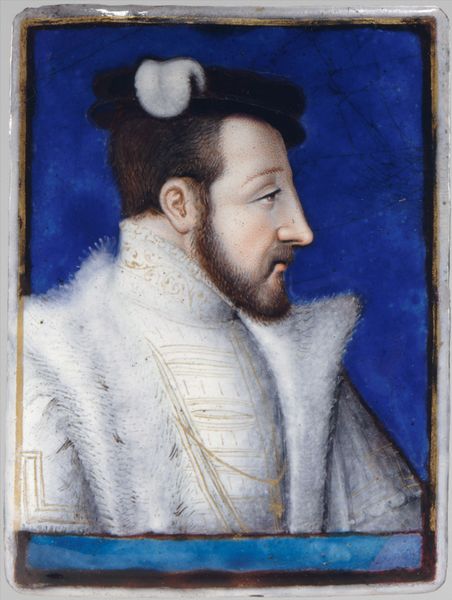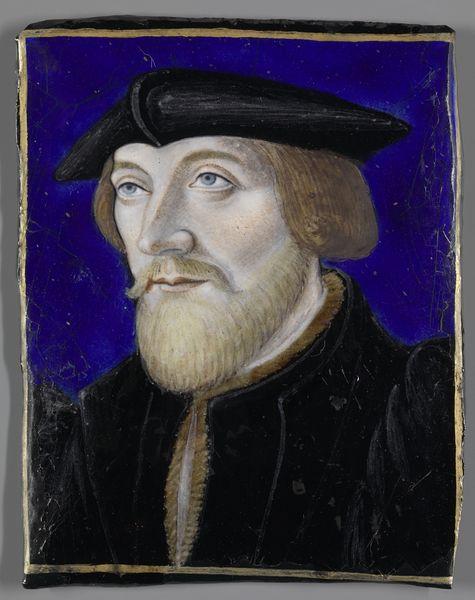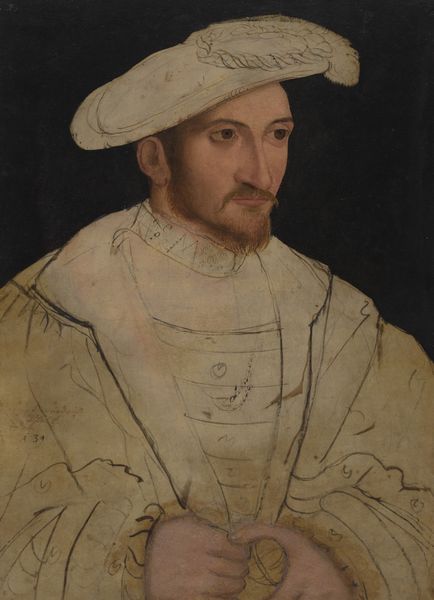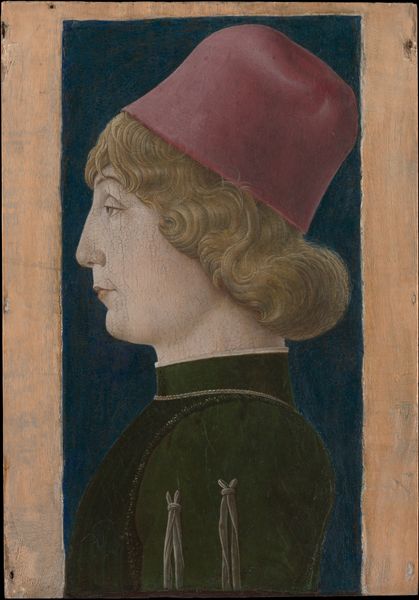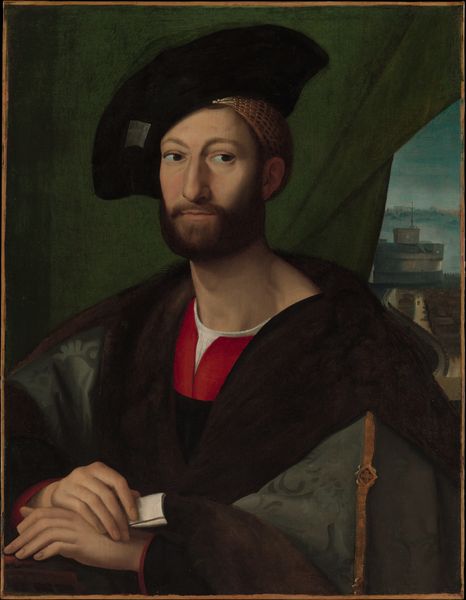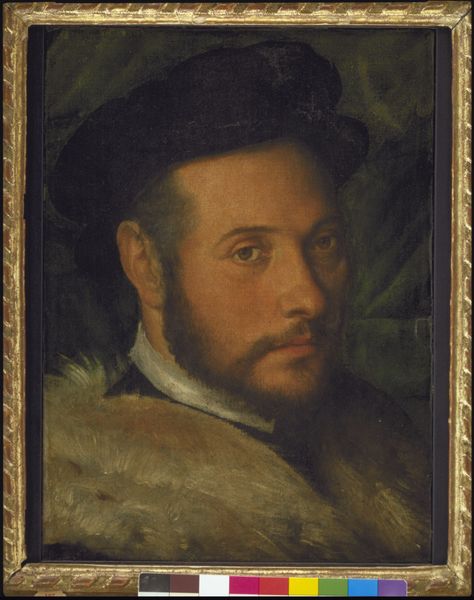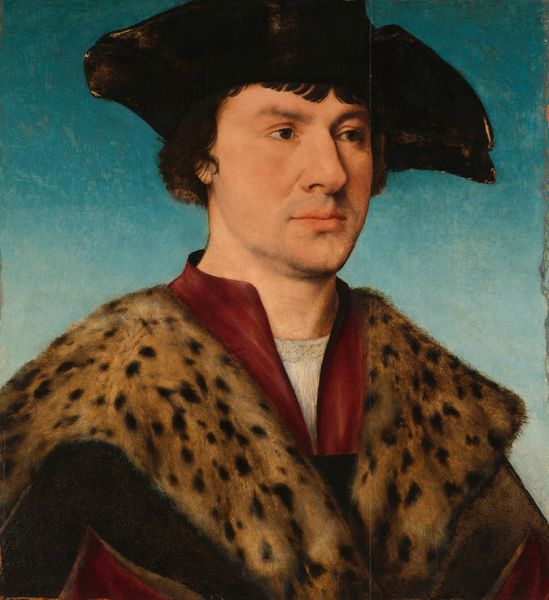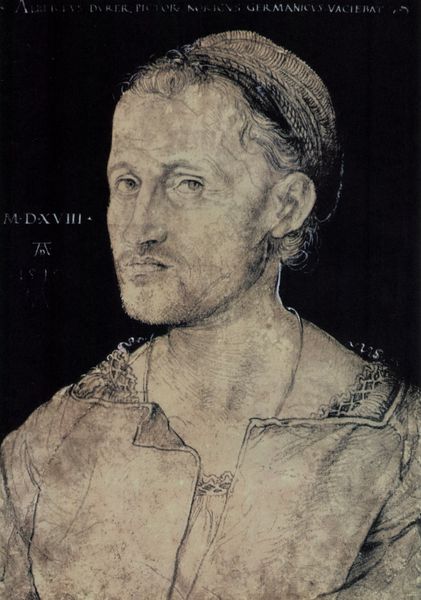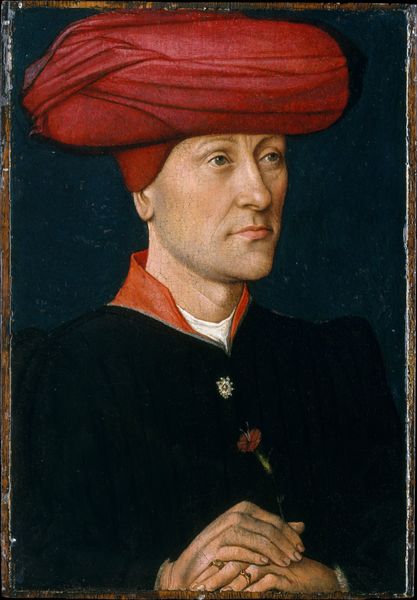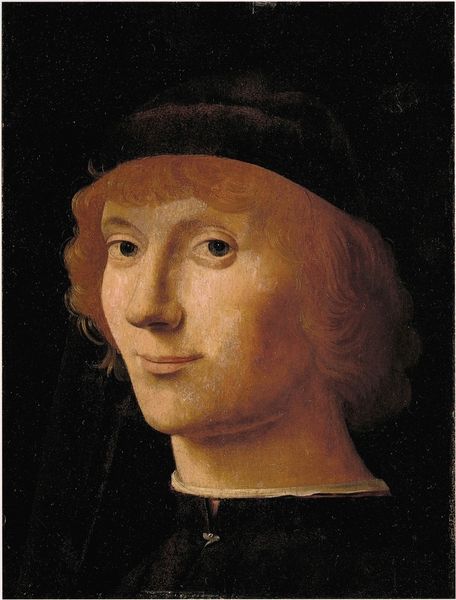
painting, metal, enamel
#
portrait
#
high-renaissance
#
painting
#
metal
#
11_renaissance
#
portrait reference
#
portrait head and shoulder
#
framed image
#
enamel
#
men
#
history-painting
#
facial portrait
#
decorative-art
#
portrait art
#
fine art portrait
Dimensions: 7 1/2 x 5 5/8 in. (19.1 x 14.3 cm)
Copyright: Public Domain
Editor: Here we have Léonard Limosin’s enamel portrait of Henri d'Albret, King of Navarre, made in 1556. The detail achieved on such a small metal plaque is stunning! What’s your take on it? Curator: Enamel work is so interesting. Think about the incredible labor involved. Each layer meticulously applied and fired at high temperatures. Consider the materials, too—where did Limosin source his pigments, his metals? It tells us about trade routes and networks of consumption during the Renaissance. Editor: So, you are saying this portrait’s value lies not just in depicting a king, but in the information it carries about materials and labor of that era? Curator: Precisely! The artist’s expertise shaped readily accessible resources into images reflecting power and status, turning enamel into a signifier of prestige. It forces us to confront the economic underpinnings of even the most seemingly decorative arts. How do you view the king’s garments within this material context? Editor: Well, the dark colors seem like a clever move. They would’ve required different materials and processes compared to, say, a bright red robe. Perhaps they even suggested a somber attitude towards displays of wealth. Curator: Yes, and think about how the production of such luxurious garments would have played into societal structure and its effect on the labour force that enabled him. It’s a system embedded within a portrait that on the surface appears to be a simple representation of the monarchy. Editor: That’s a fresh perspective. I usually see portraits as frozen moments, but this makes me consider the dynamic network of materials and work involved.
Comments
No comments
Be the first to comment and join the conversation on the ultimate creative platform.
